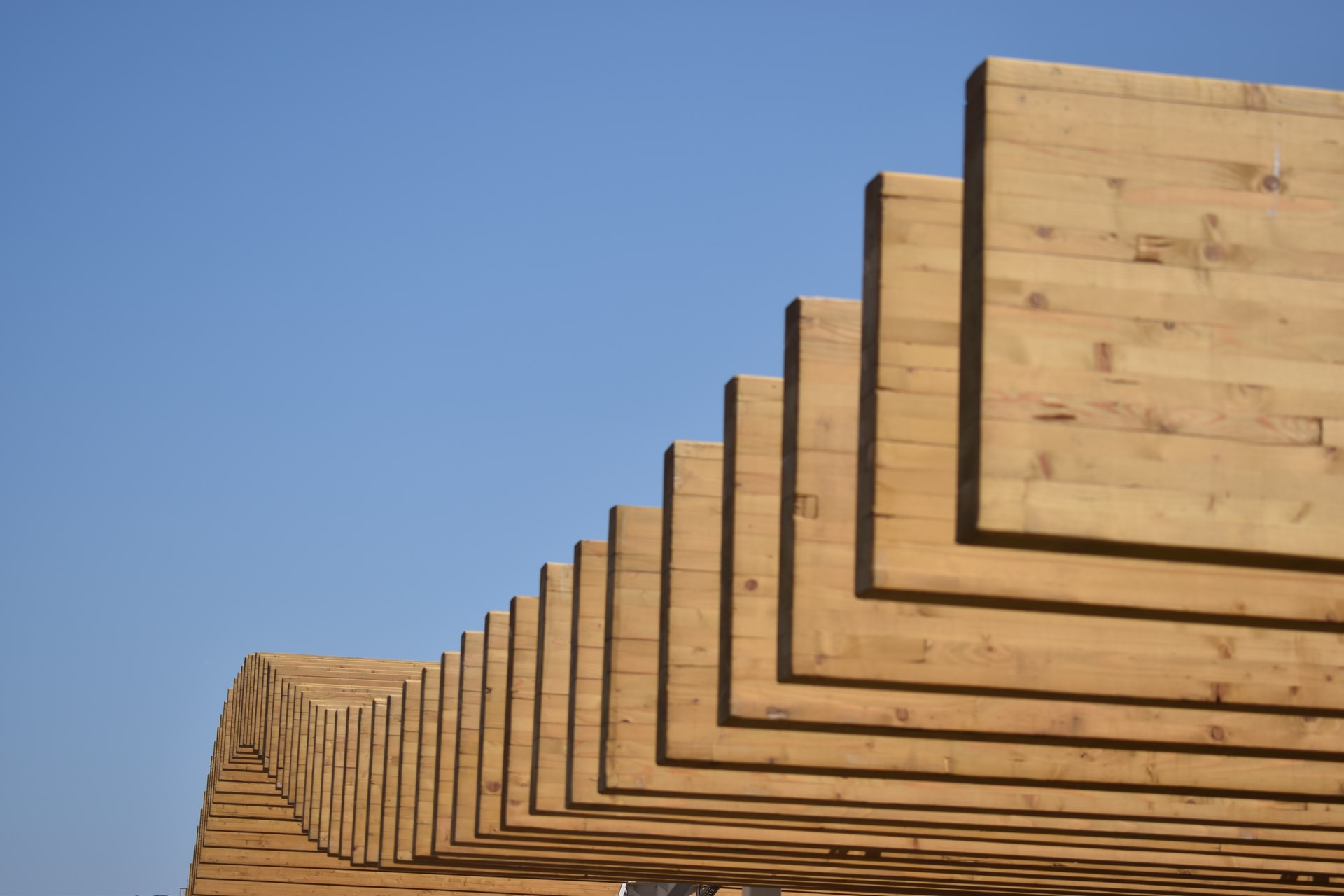In the coming years, widespread use of wood in construction could radically change the appearance of our cities. This is the hope of Laudes Foundation, founder of Built by Nature, a new organisation whose aim, over the next decade, is to harness the power of forests and the bioeconomy to create buildings fit for the future. The organisation is working with a network of leading partners such as the Bauhaus der Erdee, and has a grant-giving fund that will finance initiatives aiming to expand the use of wood in Europe.
The challenge is imposing: to decarbonise the construction sector by focusing on wood and forests. In particular, reducing the emissions from industrial construction materials that threaten to consume our remaining carbon budget. While forests, on the one hand, are recognised as the best carbon removal solution, on the other hand, their potential is not fully harnessed because of the creation of low-value, short-lifespan wood products and the non-optimal management of currently-productive forests.
Built by Nature: forests and buildings
Built by Nature is Laudes Foundation’s response to these challenges. With this new initiative, Laudes aims to unite forests and buildings in pursuit of the goals of the Paris Agreement. In the words of James Drinkwater, Head of Built Environment at Laudes Foundation, “the initiative wants to highlight the role of wood in the construction sector and enhance already existing solutions. Built by Nature aims to unite two large systems, forests and buildings, which are often completely separate. This is not only to accelerate the adoption of wooden structures but also to increase the climate impact of these solutions: ensuring that carbon is truly stored in the buildings for generations and that sustainable sourcing supports the sequestration capacity of forests. It means guaranteeing that wood and wood-based materials embrace the circular and regenerative economy and can perform on an equal footing with other materials.”
As can also be seen in new European policies, the transition towards timber construction is already happening. However, things are moving too slowly. While wood cannot, naturally, be the only solution for decarbonisation, Drinkwater says that “with Built by Nature we want to ensure that, alongside clean steel and low-carbon cement, there is an investment in timber and in the creation of demand for timber construction, which is currently lacking in most parts of Europe.”
A network to promote construction based on the power of nature
Built by Nature will become a network, connecting construction sector frontrunners at national and European levels, and a grant-making fund to support innovation and accelerate the adoption of wood in European construction. Working side-by-side with leading partners, including, among others, Climate-KIC – which has ongoing projects in Milan and Madrid concerned with the industrial, political, and financial innovation needed to transform wood-based construction – the Carbon Neutral Cities Alliance, and the University of Cambridge, Built by Nature is asking designers, developers, investors, property owners, insurers, city leaders and urban policymakers to acknowledge the importance of this moment and join forces to promote construction based on the power of nature. Tapping into the deep forestry know-how of efforts such as the Climate Smart Forest Economy Program (CSFEP www.csfep.org ), Built by Nature intends to aggregate demand for timber buildings whilst providing the right guarantees, to ensure that building with wood actually improves climate and biodiversity impacts and helps shape new markets in the right direction.
An Accelerator Fund within the path to COP26
Alongside the partnerships of businesses from the construction sector that share Built by Nature’s circular bioeconomy-based strategy and also inspired the new European Bauhaus, and through its “Accelerator Fund”, Built by Nature aims to fund teams and initiatives that spread the responsible and optimal use of wood in construction. In the coming years, the multi-million-euro fund aims to make grants of between €50,000 and €250,000 into initiatives that, for example, design new business models, research the climate and technical performance of these buildings, and accelerate policies that unlock industry innovation.
Drinkwater highlights a number of “accelerator” examples from across the region, “ZeroCarbonFund is a great example of a new financial model that tries to unite the entire carbon cycle through forests and buildings, while also looking at the economic model to create more forest-based buildings. Other interesting projects are ongoing in the Netherlands, where work is being done by Holland Houtland on frameworks to engage impact investors into biobased social housing. In the UK, University College London and leading architects Waugh Thistleton are leading research on a model residential engineered timber building – essentially providing a design manual and blueprint that shows how these building can comply with all modern fire regulations. The idea that wood and wood-based materials perform poorly in the event of a fire is one of the perceptions that is slowly changing with research and awareness raising.” Built by Nature’s accelerator partners also include visionary organisations like the Institute of Advanced Architecture of Catalonia, which, alongside the European Forest Institute, is set to host a large conference to forge a network between the forestry and construction communities in Barcelona next year – appointed European Forest City 2022.
In the transition from an extractive to a regenerative economy, Built by Nature wants to urge all stakeholders in the supply chain to invest in the research and action currently needed in the sector. Other donors are being asked to join the Accelerator Fund to support those experimental projects which could give rise to truly transformative solutions for the climate and construction. It is no coincidence that the Built by Nature initiative fits well within the path leading up to COP26, which has been described as the first COP of the “real economy”. Here, finance will be one of the key players and, for the first time, the private sector and its corporate representatives will become a central part of the agenda, alongside political leaders.
The Cities, Regions, and Built Environment Day at COP26, taking place on 11th November, is certainly a date to be marked in the diary.
Download and read the Renewable Matter issue #38 about Circular Building.



